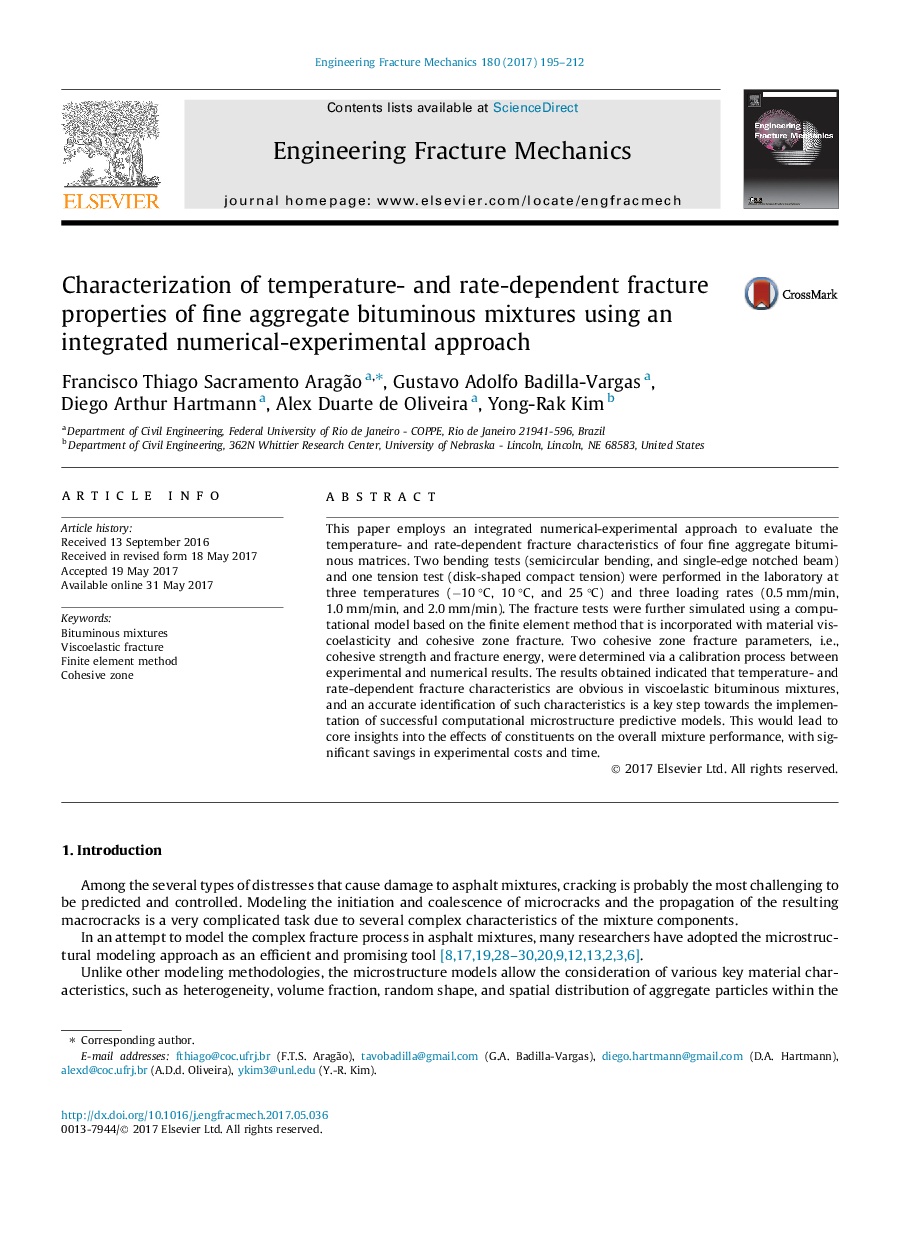| Article ID | Journal | Published Year | Pages | File Type |
|---|---|---|---|---|
| 5013850 | Engineering Fracture Mechanics | 2017 | 18 Pages |
Abstract
This paper employs an integrated numerical-experimental approach to evaluate the temperature- and rate-dependent fracture characteristics of four fine aggregate bituminous matrices. Two bending tests (semicircular bending, and single-edge notched beam) and one tension test (disk-shaped compact tension) were performed in the laboratory at three temperatures (â10 °C, 10 °C, and 25 °C) and three loading rates (0.5 mm/min, 1.0 mm/min, and 2.0 mm/min). The fracture tests were further simulated using a computational model based on the finite element method that is incorporated with material viscoelasticity and cohesive zone fracture. Two cohesive zone fracture parameters, i.e., cohesive strength and fracture energy, were determined via a calibration process between experimental and numerical results. The results obtained indicated that temperature- and rate-dependent fracture characteristics are obvious in viscoelastic bituminous mixtures, and an accurate identification of such characteristics is a key step towards the implementation of successful computational microstructure predictive models. This would lead to core insights into the effects of constituents on the overall mixture performance, with significant savings in experimental costs and time.
Related Topics
Physical Sciences and Engineering
Engineering
Mechanical Engineering
Authors
Francisco Thiago Sacramento Aragão, Gustavo Adolfo Badilla-Vargas, Diego Arthur Hartmann, Alex Duarte de Oliveira, Yong-Rak Kim,
